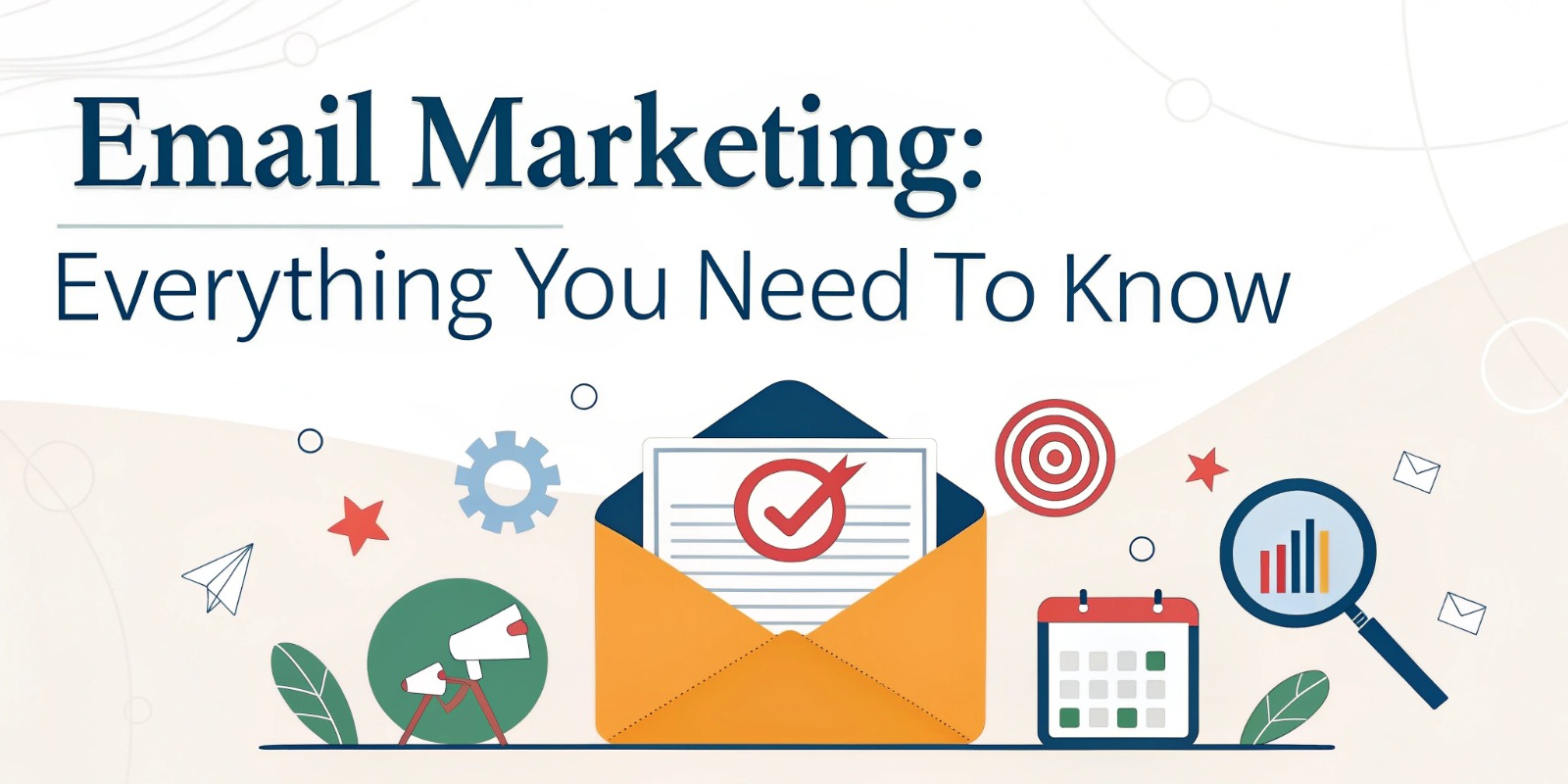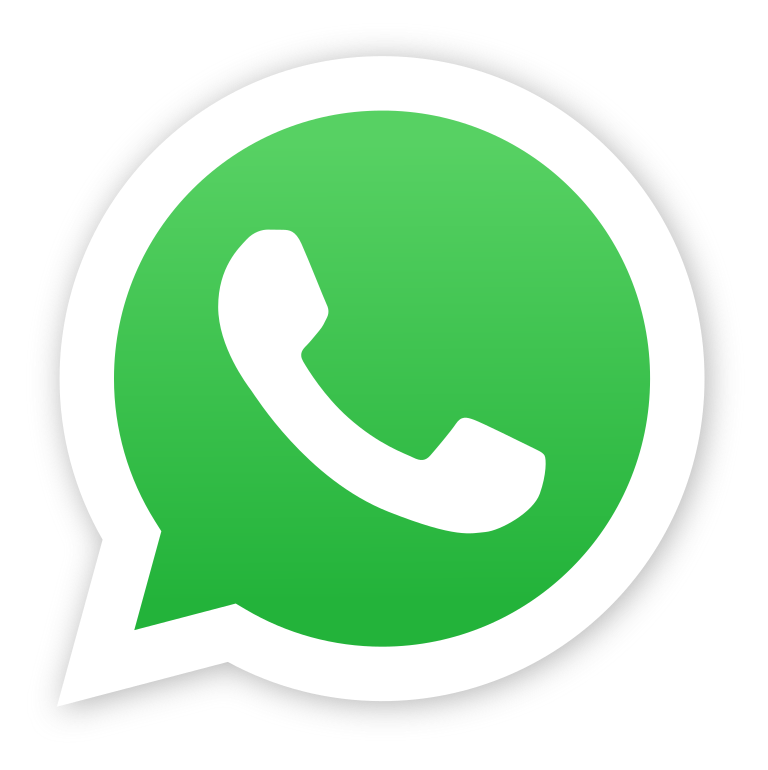Introduction to Email Marketing
Email marketing is one of the most effective digital marketing strategies for businesses to connect with their audience, nurture leads, and drive conversions. It involves sending emails to potential and existing customers to promote products, share information, or build relationships. This article covers everything you need to know about email marketing, from its definition and importance to the best email marketing tools and strategies.
Define Email Marketing
Email marketing meaning refers to a direct marketing channel that involves sending emails to a targeted audience to achieve specific business goals. These emails may include promotional content, newsletters, transactional messages, or personalized recommendations.
What is Email Marketing?
Email marketing is a digital marketing strategy that involves sending emails to a targeted group of people to promote products, services, or brand messages. It builds customer relationships, nurtures leads, increases sales, and enhances customer engagement.
Importance of Email Marketing
Email marketing is one of the most effective digital marketing strategies for businesses of all sizes. It allows direct communication with potential and existing customers, helping to build strong relationships and increase brand loyalty. Unlike social media, where algorithms control visibility, emails go directly to a subscriber's inbox, ensuring higher engagement. With automation and personalization, businesses can send targeted messages based on user behavior, increasing conversion rates.
Benefits of Email Marketing
High ROI:- Email marketing offers an impressive return on investment (ROI), with an average of $42 earned for every $1 spent. This makes it one of the most cost-effective marketing strategies for businesses.
Direct Customer Engagement:- Emails provide a direct line of communication between brands and customers, making it easier to build a personalized relationship and foster loyalty.
Cost-Effective:- Email marketing is significantly more affordable than traditional marketing channels like print ads or TV commercials, allowing businesses to reach a broad audience at a fraction of the cost.
Automation & Personalization:- With advanced email marketing tools, businesses can automate campaigns and personalize messages based on customer behavior, making each email more relevant and timely.
Traffic & Conversions:- A well-executed email marketing strategy can drive significant traffic to your website, increasing the chances of conversion and boosting sales or lead generation.
Types of Email Marketing
There are several types of email marketing campaigns, each designed to fulfill specific goals and connect with different segments of your audience:-
Promotional Emails:- These emails are designed to promote products, services, or special offers. They are often time-sensitive and include call-to-actions to encourage immediate purchases or sign-ups.
Transactional Emails:- Specific actions taken by the user trigger transactional emails. This includes order confirmations, password resets, shipping notifications, or any other interaction where the customer expects a follow-up message. These emails have high open rates due to their relevance.
Welcome Emails:- A welcome email is typically the first email sent to a new subscriber or customer. It introduces the brand, explains what the subscriber can expect, and often includes a special offer or incentive to engage further with the brand.
Newsletter Emails:- Newsletters regularly send emails containing valuable content, updates, industry news, and promotions. They aim to keep subscribers informed and engaged with the brand while providing valuable insights or entertainment.
Re-engagement Emails:- These emails are aimed at re-engaging inactive subscribers or customers. They may include incentives, updates, or exclusive offers designed to revive interest and encourage the recipient to take action.
Abandoned Cart Emails:- These emails are sent to users who have added products to their online shopping cart but failed to complete the purchase. They serve as a reminder and often include a discount or incentive to complete the transaction.
Advantages of Email Marketing
- Personalization & Segmentation – Emails can be customized based on user preferences.
- Higher Engagement – Well-crafted emails result in high open and click-through rates.
- Automation Capabilities – Email marketing platforms allow businesses to automate campaigns.
- Scalability – It is easy to scale email marketing strategy to reach a larger audience.
- A/B Testing – Businesses can optimize performance by testing different subject lines and content.
How to Do Email Marketing Effectively
<!-- /wp:heading🚀 New Batch Starting Soon!
Don't miss your chance to enroll now.
A successful email marketing strategy involves planning and executing targeted email campaigns to achieve specific business goals. The first step is to build a quality email list by gathering subscribers through website sign-ups, lead magnets, or social media promotions. Next, segment the audience based on interests, behavior, or demographics to send personalized and relevant content. Creating engaging and valuable content is crucial to capture attention and encourage action. Using automation tools, businesses can send welcome emails, follow-ups, and promotional messages at the right time. Additionally, A/B testing helps optimize subject lines, email design, and call-to-action buttons for better performance. Finally, tracking key metrics like open rates, click-through rates, and conversions ensures continuous improvement and higher engagement.
- Step-by-Step Guide on How to Do Email Marketing
- Build a High-Quality Email List
- Use lead magnets like free ebooks, discounts, and webinars.
- Collect emails through website sign-ups and social media.
- Choose the Right Email Marketing Platform
- Using an email marketing platform simplifies campaign management and automation.
- Segment Your Email List
- Divide your email list based on customer preferences, purchase history, and demographics.
- Create Engaging Content
- Write compelling subject lines.
- Personalize email content.
- Use high-quality images and clear CTAs.
- Optimize for Mobile
- Ensure that emails are mobile-friendly to reach users on smartphones and tablets.
- Automate Email Campaigns
- Use automation for Welcome series, Drip campaigns, and Follow-ups.
- Track Performance Metrics
- Monitor key metrics like open rates, click-through rates, and conversions to improve future campaigns.
2. Best Email Marketing Tools
Choosing the correct email marketing tools is essential for successful campaigns. Here are some of the Best Email Marketing Platforms:
- Mailchimp Email Marketing – Best for small businesses.
- HubSpot Email Marketing – Great for CRM integration.
- Constant Contact – Ideal for e-commerce businesses.
- GetResponse – Features include landing pages and webinars.
- ConvertKit – Designed for bloggers and creators.
3. Free Email Marketing Tools
If you are on a budget, consider these free email marketing tools:
- Mailchimp (Free plan available)
- Sender
- Benchmark Email
- MailerLite
- Omnisend
4. Email Marketing Jobs
As email marketing continues to grow, various specialized roles are emerging. Here are some key positions in the field:-
Email Marketing Specialist:- An Email Marketing Specialist creates, implements, and optimizes email campaigns. They ensure the emails align with the company's marketing strategy, analyzing data to improve performance, and using segmentation and targeting techniques to maximize engagement.
Email Campaign Manager:- The Email Campaign Manager oversees the planning and execution of email marketing campaigns. They work closely with designers, copywriters, and data analysts to create compelling content and ensure the campaign meets its objectives, whether it's increasing sales, generating leads, or boosting brand awareness.
CRM Specialist:- A CRM (Customer Relationship Management) Specialist manages and optimizes email communication through CRM tools. Their job involves analyzing customer data, segmenting audiences, and developing personalized email campaigns to enhance customer engagement and retention.
Skills Required for E-Marketing
Professionals need technical, creative, and analytical skills to succeed in email marketing. Here are some essential skills required for an email marketing role:-
Copywriting and Content Creation:- Writing clear subject lines, convincing email copy and clear calls to action is essential. Good email marketers craft engaging and relevant content that resonates with their audience and drives action.
Email Design and HTML/CSS Knowledge:- A basic understanding of email design principles, such as layout, mobile optimization, and responsive design, is essential. Familiarity with HTML and CSS allows email marketers to create visually appealing and functional emails.
Email Automation and Segmentation:- Proficiency with email marketing automation tools (e.g., Mailchimp, HubSpot, or Marketo) is essential. The ability to segment email lists based on user behavior or demographics ensures emails are personalized and targeted to the right audience.
Data Analysis and Reporting:- Strong analytical skills are required to measure the success of email campaigns. Marketers need to understand key metrics like open rates, click-through rates, conversion rates, and bounce rates and use this data to optimize future campaigns.
A/B Testing:- The ability to run and analyze A/B tests is key to improving email performance. Marketers must experiment with different subject lines, content, and design elements to understand what works best for their audience.
CRM and Database Management:- Experience with customer relationship management (:- CRM) software helps manage and segment email lists effectively. Marketers must understand customer behavior and ensure the right messages are delivered to the right people at the right time.
Marketing Strategy and Campaign Planning:- Email marketers should understand broader marketing strategies. They must align email campaigns with business objectives, coordinate with other marketing channels, and ensure consistency across all touchpoints.
Knowledge of Spam Regulations and Compliance:- A solid understanding of regulations such as CAN-SPAM (USA), GDPR (Europe), and other data privacy laws is crucial to avoid legal issues and maintain trust with subscribers.
Creativity and Attention to Detail:- Creativity is essential in designing engaging emails and thinking of unique ways to grab the audience's attention. Attention to detail ensures that every email is error-free, visually appealing, and on-brand.
Time Management and Organization:- Managing multiple campaigns, deadlines, and priorities requires excellent organizational skills. Time management ensures that campaigns are executed efficiently and consistently.
Email Marketing Course:-
Email marketing remains one of the most effective digital marketing strategies, helping businesses connect with their audience, drive engagement, and boost sales. To master email marketing, several online courses offer in-depth training on content creation, automation, segmentation, and analytics. Top-rated courses include HubSpot's Email Marketing Certification, Google's 'Think Outside the Inbox' on Coursera, and Mailchimp's Email Marketing Course, each providing valuable insights for beginners and experienced marketers alike. Platforms like Simplilearn and Omnisend offer advanced training to refine strategy and improve campaign effectiveness. Choosing the right course depends on your skill level and marketing goals, with options available for free and paid learning experiences.
Paid Courses:
- Udemy: Email Marketing Mastery – A practical course with real-world applications.
- Coursera (Offered by Meta, Google, etc.) – Includes professional certifications.
- LinkedIn Learning: Advanced Email Marketing – Covers lead nurturing, automation, and analytics.
Conclusion
Email marketing remains one of the most powerful tools for businesses to engage customers, generate leads, and boost sales. In today's competitive market, having a well-planned email marketing strategy is essential for building strong relationships with potential and existing customers. Businesses can maximize their success and drive higher revenue by understanding the importance of email marketing, utilizing the right email marketing tools, and implementing effective email marketing strategies. Moreover, integrating email marketing with other digital marketing techniques enhances brand visibility and customer retention. For those looking to master email marketing and other digital marketing tactics, enrolling in a digital marketing course in Jaipur can provide in-depth knowledge, hands-on training, and practical insights into the latest industry trends.



